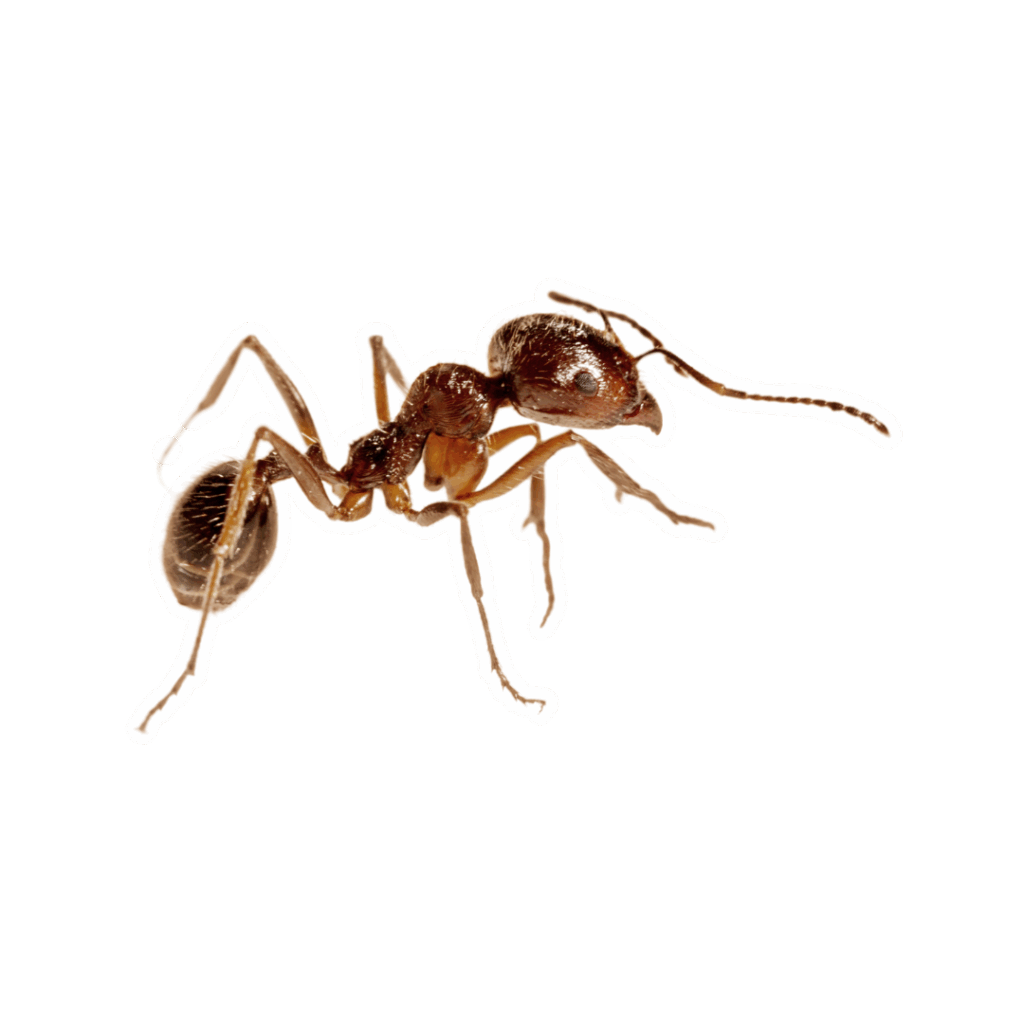- Home
- Pest Control
- Insects
- Ants
Ant Control & Extermination Services
Our pest control experts have the experience to correctly identify, treat and remove ants from your property.
Why Professional Ant Control is Essential?
Ant infestations are one of the most common issues for both homes and businesses, and once ants get inside, they spread quickly. These insects enter through small gaps around windows, doors, or foundations while searching for food and moisture. Without professional pest control services, ant colonies can grow fast and become difficult to eliminate. Our team uses science-backed methods aligned with EPA guidelines, CDC recommendations, and NPMA best practices to ensure safe, effective results.
Correct identification is essential for choosing the right treatment. Some of the most common species we see include carpenter ants, Argentine ants, pavement ants, pharaoh ants, and fire ants. Integrated pest management ensures each species is treated with the correct strategy for long-term control.
- Carpenter ants – attracted to damp or damaged wood
- Argentine ants – aggressive, fast-spreading, and common in residential neighborhoods
- Pavement ants – nest in cracks and follow predictable trails into buildings
- Pharaoh ants – known for spreading in hospitals, restaurants, and multifamily housing
- Fire ants – stinging ants that create visible mounds outdoors
How Ant Colonies Operate
Ants live in organized colonies made up of workers, queens, and developing young. Because ants reproduce quickly and spread through walls, attics, soil, and landscaping, DIY methods rarely provide lasting relief. Understanding colony behavior is a key part of our integrated pest management process and recommended by organizations such as the NPMA.

Testimonial
Here’s what our pest control customers say
From ant invasions to termite troubles, our customers trust us to protect their homes and families. Here’s what they have to say about our safe, effective, and reliable pest control services.
Why Choose Us
Experienced pest management backed by strong values.
At Innovative Pest Solutions, we believe excellence starts with values. Guided by servant leadership, decades of experience, and certified training, we deliver safe, effective, and environmentally responsible pest management for homes and industries.
Faith & Integrity
We lead with Christian values and servant leadership—treating every client with honesty, respect, and care.
Health & Protection
Our services safeguard public health by preventing pests that spread asthma triggers and diseases like Typhoid and West Nile virus.
Team & Family
We foster a culture of teamwork, quality, and balance—treating every property like our own and supporting our people like family.
Certified Expertise
Over 60 years of combined experience and full regulatory certifications ensure safe, proven solutions for any pest challenge.
ANTS > OUR APPROACH
Our Ant Control Approach
Innovative Pest Solutions uses advanced detection tools and targeted treatment methods to eliminate ants and prevent future activity. Our programs include eco-conscious solutions that follow EPA-approved materials and strategies supported by the CDC for safe application.
We also help property owners stay protected long term through our
pest control services, pest-proofing and prevention, and integrated pest management programs.

Common Questions
Frequently Asked Questions
Ant Control FAQs
Ants are drawn to moisture and accessible food sources such as sugar, grease, meats, peanut butter, and even damp or rotting wood. Cracks around doors and windows often provide easy entry points.
Signs include seeing trails of ants, finding nests in soil, pavement, or wood, and discovering food contamination. Winged ants inside your home may also indicate a mature colony nearby.
No. Effective treatment depends on the species. Carpenter ants, fire ants, pavement ants, and pharaoh ants each require specific control strategies, which is why professional identification is critical.
Yes. Carpenter ants burrow into damp wood, potentially damaging structures, while fire ants can build large outdoor mounds and pose a stinging hazard. Even smaller species like pharaoh ants can spread harmful bacteria in sensitive environments.
Prevention involves sealing cracks, keeping food stored properly, fixing moisture issues, and scheduling regular pest control services. Professional treatments provide long-term protection against recurring infestations.
ANTS > LONG-TERM PREVENTION
Long-Term Prevention With Innovative Pest Solutions
Whether you need residential pest control services or commercial pest control services, our team builds a custom plan that aligns with IPM principles and industry standards from the NPMA.
Visit our learn more about ants page to explore behavior, risk factors, and prevention strategies backed by trusted sources like the EPA, CDC, and NPMA.

